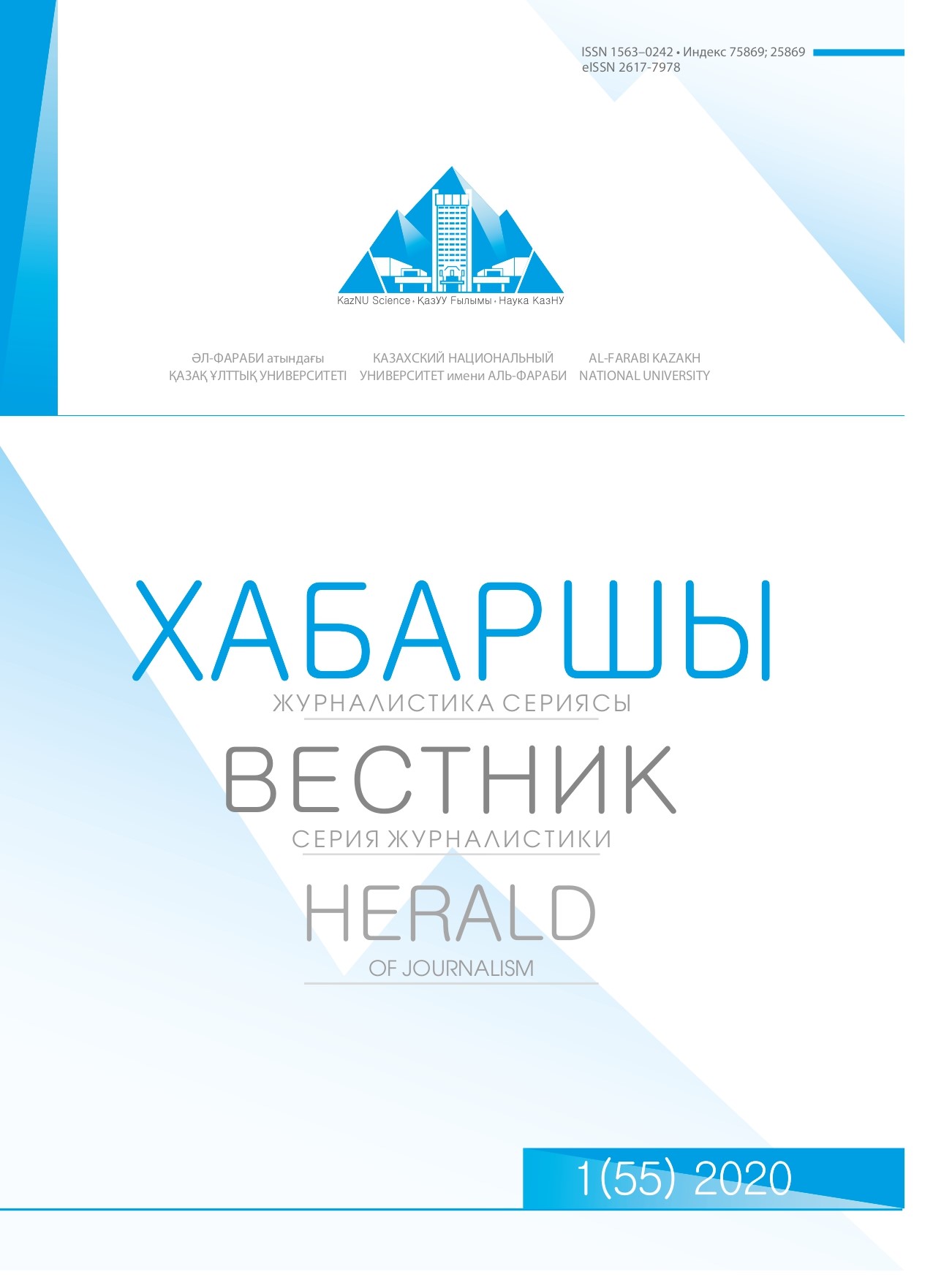Intellectual capital as the basis of knowledge society development
DOI:
https://doi.org/10.26577/HJ.2020.v55.i1.02Кілттік сөздер:
intellectual nation, intangible investments, human capital, knowledge society.Аннотация
The article is devoted to the problems of the development of a knowledge society. The formation of an “intellectual nation” is a way of modernizing society in the 21st century, when creative individuals become the main source of development. “Intellectual nation project” should consider three potential points: creation of new solutions, technologies and innovations; information revolution; spiritual educa- tion of youth. Today Kazakhstan has enough features to take its rightful place in the sphere of training specialists competitive on the world stage.
The purpose of this article is the production of fixed capital and the highest value – an individual, who is not only a professional, but also carries qualities and properties of his spiritual and moral person- ality.
The article carried out a systematic and comparative analysis of the works of outstanding researchers who conducted research in the field of intellectual investments, intangible values, economic freedom, political freedom, mass communication and public interests, political discourse and metaphor, as well as analysis, discussion and evaluation of ways to form a national Kazakhstan’s potential.
To increase the intellectual potential of Kazakhstan, it is necessary to create a knowledge society. Prerequisites contributing to this, consider increasing scientific and innovative potential, increasing ac- cess to education for the population, increasing access to informational equality for citizens.
When working on the study, the authors applied the content analysis method in the theoretical part and the questionnaire method. The scientific novelty of this study is to develop recommendations for optimizing the impact of the media on life by the modern target audience of the formation of an intel- lectual nation.
The practical significance of this study lies in the fact that its results can be used both in further theo- retical analysis of the problem and in the practice of organizing media.
Библиографиялық сілтемелер
Bukalov C. About place of socionika in a number of other systems. SmiPL. 1995; 2: 56-58.
Bounfour А. University of Marne La Valle, France Assessing Performance of European Innovation Systems: An intellectual Capital Indexes Perspective.
Carlsson B., Eliasson G. Industrial Dynamics and Endogenous Growth. KTH. – Stockholm: Sweden, 2001. - 24 p. Clement W., Hammerer G., Aussagen Z. Zur österreichischen Hartwäh-rungspolitik. - Industriewiss. Inst., 1995.
Edvinsson L., Malone M. Intellectual capital. Determining the true value of the company [Electronic resource] URL: http://iir- mp.narod.ru/books/ inozemcev/ page_1429.html (date accessed: 16.05.2015)
Humanitarian technologies in university educational practice: theory and design methodology: Textbook. St. Petersburg.
2007:198.
Kenzhegaraev N.D. Basic methodological principles of formation of intellectual personality based on the concept of A. Kunan- baeva “Complete Person”. Materials of II International Scientific Conference / Pedagogy: tradition and innovation. Chelyabinsk, Russia, 2012: 96-98.
Kurochkin A. Humanities technology: the problem of choosing the methodological foundations. www.gtmarket.ru/laboratory/ expertize/2006/725
Levashov V.K. Intellektual’nyy potentsial obshchestva: sotsiologicheskiye issledovaniya i prognozirovaniye [Intellectual poten- tial of society: sociological research and forecasting] http://www.gtmarket.ru/ratings/legatum-prosperity-index/info.
Lukyanov D.V. Istoriograficheskoye znaniye i gumanitarnyye tekhnologii sovremennosti. Kommunikativnyye strategii kul’tury i gumanitarnyye tekhnologii. Nauchno-metodicheskiye materialy. [Historiographical knowledge and modern technologies of the humanities. Communicative strategies of culture and humanitarian technologies. Scientific and methodological materials.] - St. Petersburg, 2007. - 79 p.
Mynbay D. The Laws of History www.centrasia.ru/newsA.php
Nazarbayev N.A. Sotsial’no-ekonomicheskaya modernizatsiya– glavnyy vektor razvitiya Kazakhstana [Socio-economic mod- ernization is the main vector of development of Kazakhstan] // www.akorda.kz
Ostrovsky E. Advertising as a tool for high humanitarian technologies. www.rae.ru
Stewart T.A. Intellectual Capital. The New Wealth of Organizations. – N.Y. – L., Doubleday / Currency, 1997. Copyright – T.A.Stewart, 1997
Sultanbaeva G.S., Kulsarieva A.T., Zhumashova Zh.A. Ot intellektual’noy natsii – k intellektual’nomu potentsialu. Kollektivna- ya monografiya. [From intellectual nation to intellectual potential. Collective monograph.] - Almaty: IE Volkova N.A., 2012.-9 p.
Teece D.J. Dynamic capabilities and strategic management \ Oxford University Press.2009
Zhuravlev V.A. Intellektual’nyy potentsial kreativnogo obshchestva – elementy i kharakteristika // Kreativnaya ekonomika. [Intellectual potential of a creative society - elements and characteristics // Creative Economy.] - 2009. — № 8 (32). — С. 3-14.













